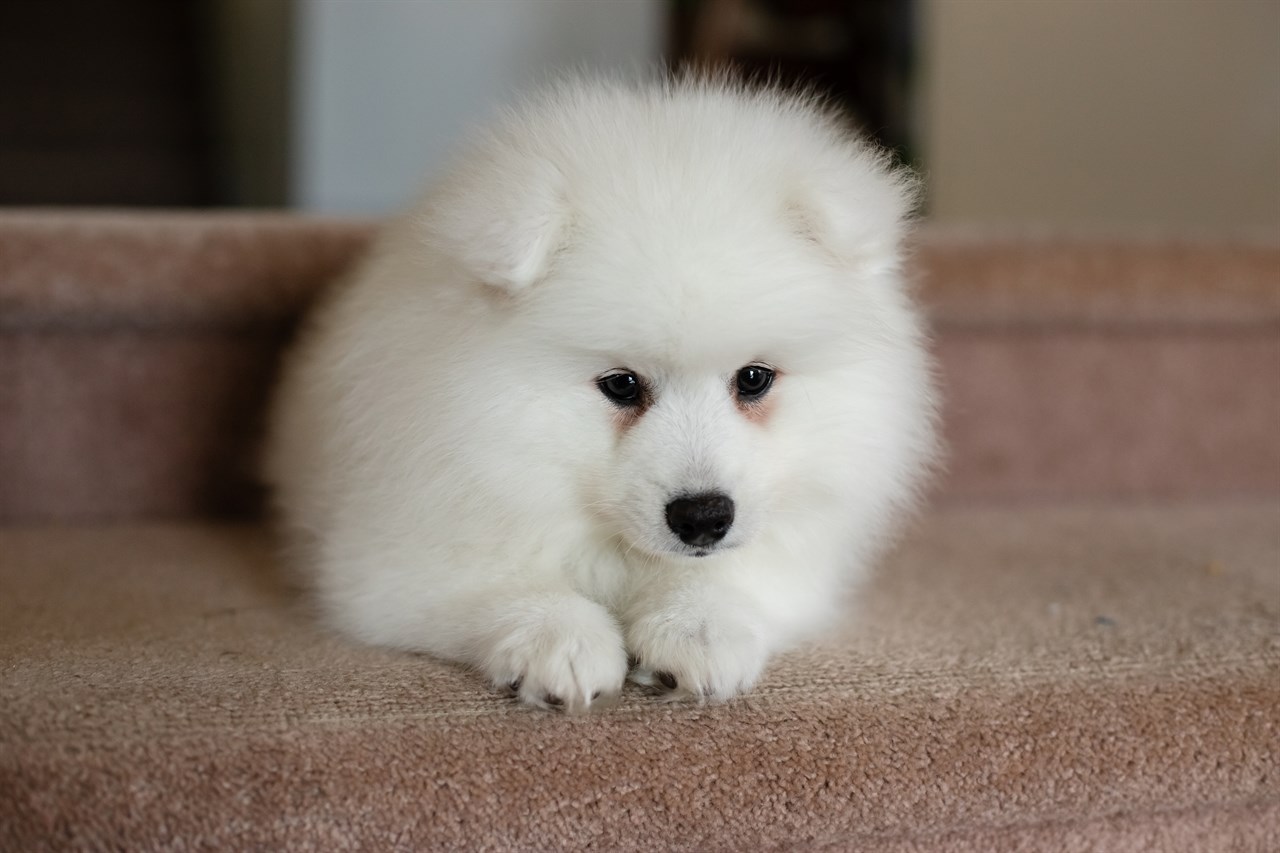Downsides or Disadvantages to Ownership of the Japanese Spitz

While Japanese Spitzes are charming and affectionate companions, like any breed, they come with their own set of potential downsides and challenges that prospective owners should be aware of. Here are some of the common downsides associated with Japanese Spitz ownership.
Separation Anxiety
Japanese Spitzes are prone to separation anxiety. They form strong attachments to their owners and can become anxious or distressed when left alone for extended periods. This can lead to destructive behaviour and excessive barking.
Barking Tendency
Japanese Spitzes are known for their vocal nature. They may bark to alert you to strangers or other perceived threats. excessive barking can be a nuisance to neighbours if not properly managed through training.
Grooming Needs
Their beautiful white double coat requires regular grooming to prevent matting and maintain its health. This can be time-consuming, and some owners may find it challenging to keep up with their grooming requirements.
Training Sensitivity
Japanese Spitzes are intelligent but can be a bit independent and sensitive to harsh training methods. They respond best to positive reinforcement training techniques and may not react well to punishment-based approaches.
Not Hypoallergenic
While Japanese Spitzes may shed less than some other breeds, they are not hypoallergenic. They can still trigger allergies in sensitive individual due to the dander they produce.
Health Concerns
Like all breeds, Japanese Spitzes can be prone to certain health issues, including patellar luxation, hip dysplasia, and eye problems. Responsible breeding practises can help reduce the risk, but prospective owners should be prepared for potential veterinary expenses.
Socialisation Needs
Japanese Spitzes benefit greatly from early and ongoing socialisation. Without proper socialisation, they may become shy or wary of new people and situations, which can lead to behaviour problems.
Not Ideal for Allergy Sufferers
While they may be more tolerable for some allergy sufferers due to their minimal shedding, Japanese Spitzes are not hypoallergenic. Allergies to dog dander can still be an issue for sensitive individual.
Why are Spitz aggressive?
Spitz breeds, including the Japanese Spitz, are not typically known for aggression. However, individual temperament can vary, and any breed can exhibit aggressive behaviour if not properly trained, socialised, or if they have experienced mistreatment or neglect. Aggression in dogs is usually a result of various factors, including fear, anxiety, territorial behaviour, or a lack of proper socialisation and training. Responsible ownership, early socialisation, and positive reinforcement training can help prevent aggression in Japanese Spitzes and most other breeds. If you observe aggressive behaviour in your Japanese Spitz, it's essential to consult with a professional dog trainer or behaviourist to address and manage the issue appropriately.
Japanese Spitz puppies for sale
- Find Japanese Spitz puppies for sale in ACT
- Find Japanese Spitz puppies for sale in NSW
- Find Japanese Spitz puppies for sale in NT
- Find Japanese Spitz puppies for sale in QLD
- Find Japanese Spitz puppies for sale in SA
- Find Japanese Spitz puppies for sale in TAS
- Find Japanese Spitz puppies for sale in VIC
- Find Japanese Spitz puppies for sale in WA